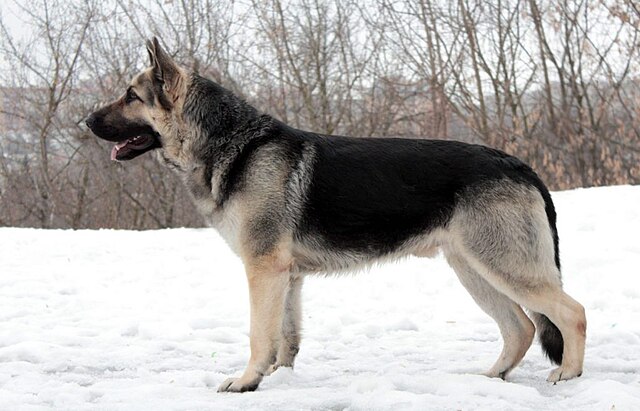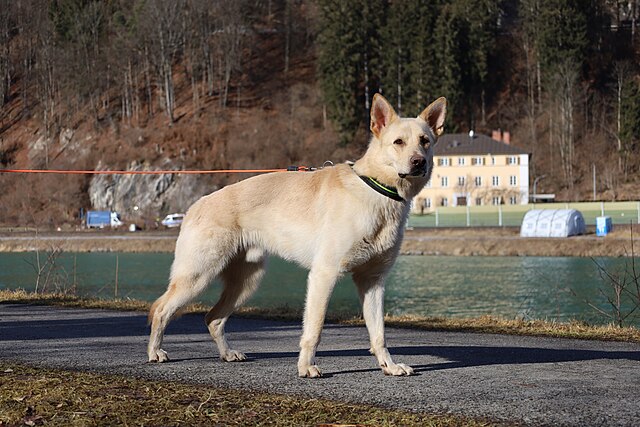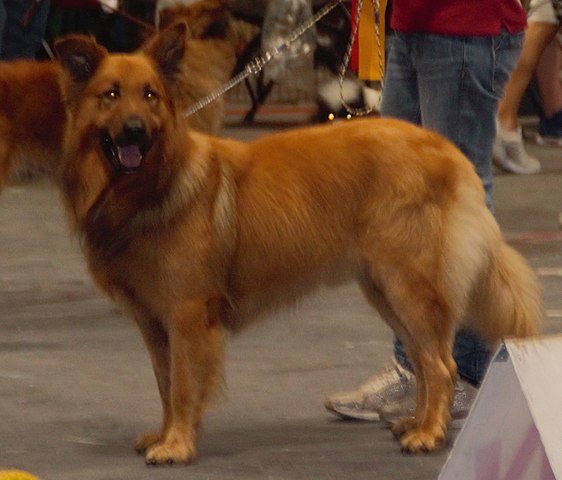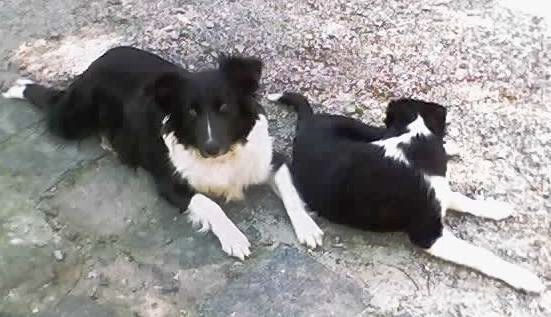The Shetland Sheepdog, as his name might imply, is a small herding breed from the Shetland Islands. Fanciers of the breed are drawn not only to their beauty, but also to their fantastic temperaments. Always willing to please and extremely versatile, these little dogs make excellent competitors in the performance rings. They also make exceptionally loyal and devoted family pets, capable of providing lots of love and affection. There is an array of personalities seen in the breed, from introverted to sociable and from calm to animated. Almost all Shelties are loving little shadows who enjoy following their people from room to room.
Most Shelties are playful, gentle, and get along with children – particularly if they have been raised with them. The breed thrives on being around people, whether young or old, although they must live indoors and be part of the family. As they are highly attuned to emotions of their family, they do best in households that aren’t too chaotic or constantly stressful. Owing to their friendly nature, Shetland Sheepdogs also tend to get along well with other dogs (especially other Shelties) and cats.
Shelties are very attentive – a trait which makes them adept at being watchdogs. Somewhat suspicious of strangers, they will definitely bark when someone new comes to the house. This is not a guard dog, however. The breed is reserved and even sensitive. But they will bark… a lot! Many use their voices to announce even small changes in the house. Rearranged furniture can sometimes cause a Sheltie alarm!
Shetland Sheepdogs are very responsive to training and are often seen in the obedience, agility and herding rings. These versatile dogs were born to work and need a regular job in order to be happy and calm. Both males and females alike are equally willing to work (although some owners have noticed the males are more affectionate in general). Not only do they love to work but they are often referred to as highly intelligent. Shelties learn extremely quickly! One caveat – they enjoy chasing moving animals or objects, including cars. All training should include a rock-solid recall, and a fence is still recommended for when they cannot be supervised. 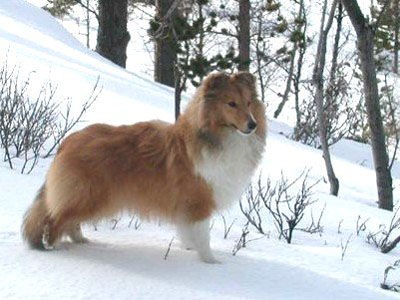
For the most part, Shelties tend to keep themselves clean and usually only require a thorough brushing two or three times a week. The thick double coat is often more profuse in the males but both sexes need regular grooming, especially during shedding season (yes, they do shed). As with all breeds, the nails must be kept trimmed and teeth kept brushed. Many Shetland Sheepdogs learn to love the grooming experience, especially if the owner starts when the dog is young and makes it an enjoyable experience. Shelties come in a myriad of colors, including sable, blue merle, tricolor, bi-black (black and white) and bi-blue (blue merle and white).
As with most herding breeds, the Shetland Sheepdog is high energy and thrives on being given plenty of exercise. This said, they don’t necessarily need to live on a farm – as long as the owner is ready and willing to provide the exercise they need… which might mean a couple of hours a day. It is very difficult to live in an apartment with a Sheltie and not normally recommended. When taken care of with exercise, good food and vet care, this healthy breed will often live 14-16 years.
With their thick coats, Shelties handle cold weather like a breeze. They aren’t big fans of super hot weather but can handle it fine as long as they are kept brushed out. Their coat serves as insulation from both heat and cold, but if the hair is matted up then air can’t reach the skin. It’s very important to never shave a Sheltie as you are effectively taking away their ability to regulate their temperature, as well as making them more prone to sunburn.
Because the Shetland Sheepdog is one of the more popular breeds of dog, it is strongly advised to only buy from a reputable breeder. There are many backyard breeders (unreputable) who are just trying to make a quick buck from their popularity. This means poor temperament and poor health. Instead, look for a breeder who is a member of one of the many Sheltie clubs, who does health testing, and who competes with their dogs in conformation or performance events.
